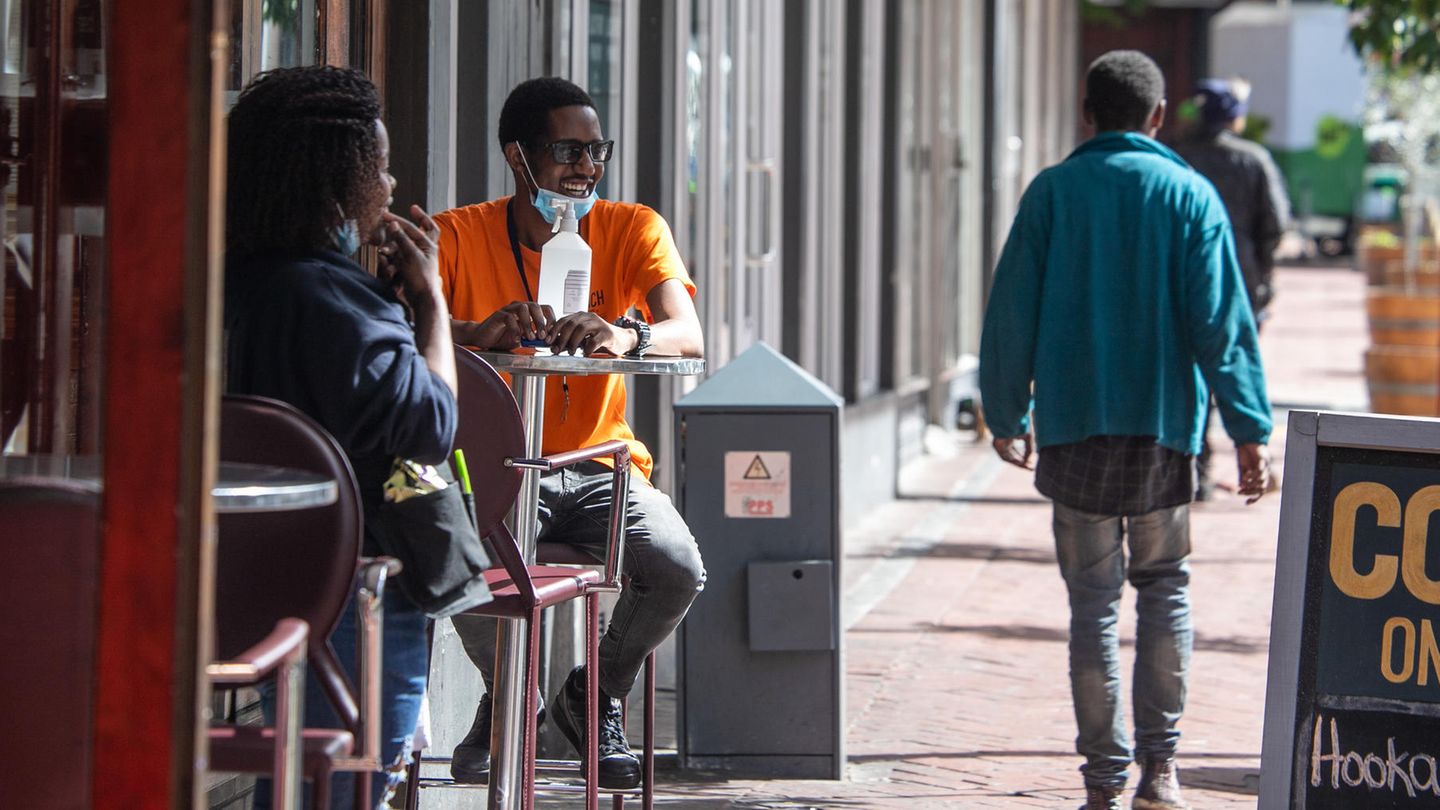In South Africa, the fourth corona wave is almost over. The government has now decided to abolish almost all protective measures. Many are hoping that things will get better now – but a few doubts remain.
By Marina Hoecker
There is a relaxed atmosphere on the famous Vilakazi Street in Johannesburg. “I’m very happy because I’m still alive,” says a woman in a report by US television channel CNN. Many South Africans are celebrating the return to normality and are optimistic about the flattening omicron wave.
Abolish most of the Corona measures at the beginning of the week. Schools are returning to normal classes. Quarantine times for infected people and their contact persons are shortened, and those who have no symptoms no longer have to isolate themselves at all. Only the mask requirement and general hygiene rules remain in place – and calls for the last restrictions to be abolished are also getting louder.
Most of the population already had a corona infection
That was not always so. South Africa is considered to be the country on the African continent most severely affected by the corona pandemic. The first three waves of infection were intense and claimed many lives – there have been more than 95,000 since the outbreak of the pandemic. But many things changed with Omikron: The beds that hospitals had made available out of fear of many new admissions in the fourth wave remained empty. The variant, which was new at the time, spread from the province of Gauteng throughout the country. The government was sovereign, did not impose any drastic restrictions – and was right.
The most recent easing was justified, among other things, with the vaccination level. But the proportion of fully vaccinated people is according to just around 28 percent. What distinguishes South Africa from European countries, in addition to the very young population: According to several studies, at least 60 to 80 percent of the population is already immune to the corona virus. Since the outbreak of the pandemic, the country of almost 60 million inhabitants has officially registered around 3.6 million infections – according to experts, the number of unreported cases is many times higher.
Initial studies also indicated early on that omicron had a rather mild course of the disease compared to the delta variant. In December, the (NICD) announced that the virus was likely to cause less severe illness. At the same time, however, the institute pointed out that the lower degree of severity could also be related to the high immunity within the population.
A finding that has apparently been confirmed. The South African health expert Dr. Angelique Coetzee now breathes a sigh of relief. After the doctor had treated patients infected with omicron for weeks, her conclusion was clear. “I can live with Omikron, but I never want to experience Delta again,” Coetzee told RTL.
The economic situation also pushed South Africa to relax
It seems like the country where the omicron variant was discovered has all but overcome the pandemic. But not all experts share the optimism of many South Africans and assume that everything will be better now. “Certainly that’s a scenario we can potentially consider, but at the same time there’s a scenario that this variant will be replaced by something far more contagious,” Netcare CEO Richard Friedland told CNN. Netcare is one of the largest private hospital groups in South Africa.
It is also clear that the government did not really have a choice. The decision to return to normal was also a decision to ensure economic survival. The unemployment rate was officially 34.9 percent at the end of last year. If you include those who have given up looking for a job, it even rises to 44.6 percent.
The tourism industry in particular, which secures hundreds of thousands of jobs in South Africa, has been hit hard – not least because of the travel restrictions that many countries imposed on South Africa shortly after the discovery of the Omicron variant. Most of these have since been lifted, but the aftermath remains.
Sources: with dpa material
Source: Stern
David William is a talented author who has made a name for himself in the world of writing. He is a professional author who writes on a wide range of topics, from general interest to opinion news. David is currently working as a writer at 24 hours worlds where he brings his unique perspective and in-depth research to his articles, making them both informative and engaging.




